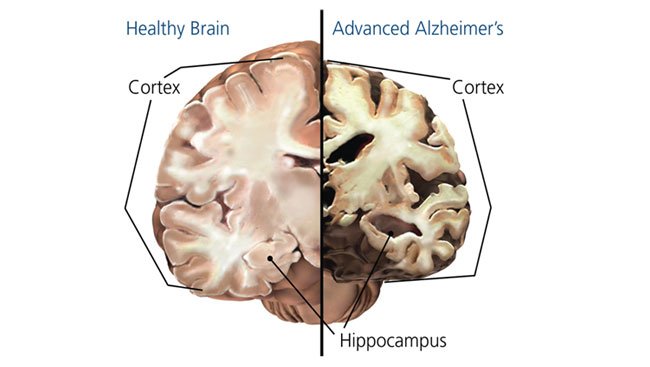Alzheimer's Disease: Are You at Risk? Part 1
Alzheimer’s disease usually develops after a person reaches 65 years of age; however, rare forms of Alzheimer’s can occur in people much younger than that. You may be at risk for Alzheimer’s disease if your mother, father, or other family member had it. Alzheimer’s disease is one of those diseases that can be caused by genetic and environmental factors.
Aluminum and Alzheimer’s disease
For a long time it was thought that aluminum could be a possible environmental factor for developing Alzheimer’s disease. Aluminum was suspected to be a contributing factor for Alzheimer’s disease because a commonality among people with Alzheimer’s disease is that they have higher levels of aluminum in their bodies than people who don’t have the disease. It seemed logical in the 1960s and 1970s that aluminum might be a causative factor because many people drink out of aluminum cans, use antiperspirants and take antacids which have aluminum in them. Many of us cook with aluminum cookware and use aluminum foil on a regular basis. Studies have been done to confirm or rule out aluminum as a causative factor, and the studies revealed that aluminum is not a contributing factor for developing Alzheimer’s disease.
If you have a family history of Alzheimer’s disease, you might want to consult with your doctor about genetic testing. The apolipoprotein E (APOE) gene is the most common gene in people with or at risk for Alzheimer’s disease. There are 3 forms of the APOE gene, and only one of them increases the risk for the disease. One of the forms, APOE e 2, is the least common form of the gene, and it seems to lower your risk of developing Alzheimer’s. APOE e3 seems to have no effect on causing or preventing the disease, while the APOE e 4 gene seems to increase your risks for developing dementia due to Alzheimer’s disease.
We inherit the APOE genes from our parents. Our degree of risk for developing Alzheimer’s disease depends on the type of APOE genes we inherit. For instance, if we inherit one APOE e 3 gene (has no effect one way or the other) and one APOE e 4 gene, we will be at risk for developing the disease. However, if we inherit two copies of the APOE e 4 gene, our risk for developing Alzheimer’s disease has increased. However, genes don’t tell the complete story.
Not everyone who inherits the APOE e4 gene will go on to develop Alzheimer’s disease. Having the gene only means that you are at risk for developing Alzheimer’s disease; it doesn’t mean that you will actually get the disease. In fact, many people who have Alzheimer’s disease don’t even have the APOE e4 gene, which suggests that there are other factors which actually cause the disease.
Sources
- https://www.alz.org/alzheimers-dementia/what-is-alzheimers/causes-and-risk-factors
- https://www.mayoclinic.org/diseases-conditions/alzheimers-disease/in-depth/alzheimers-genes/art-20046552
To be continued
Posted with STEMGeeks

Congratulations @ruari! You have completed the following achievement on the Hive blockchain and have been rewarded with new badge(s) :
You can view your badges on your board and compare yourself to others in the Ranking
If you no longer want to receive notifications, reply to this comment with the word
STOPTo support your work, I also upvoted your post!